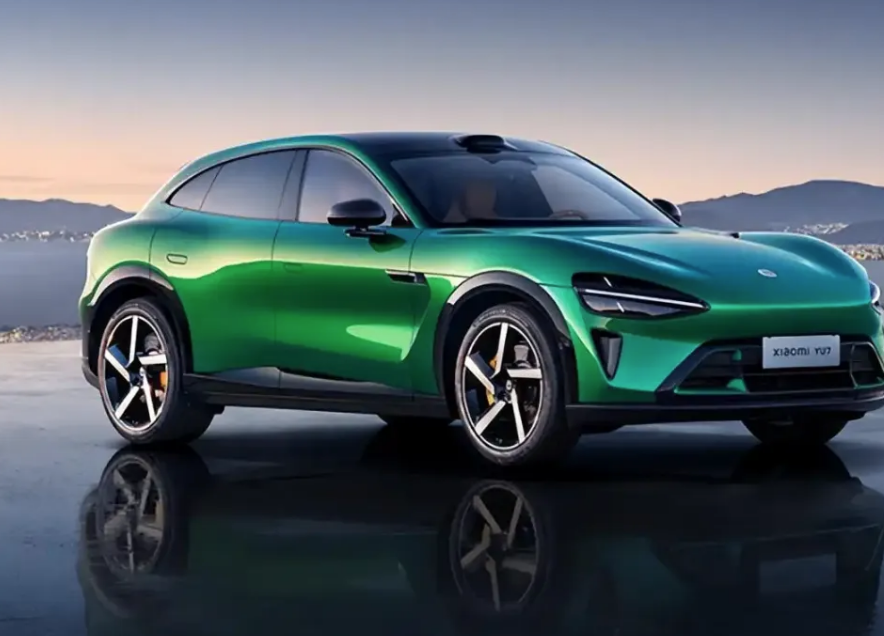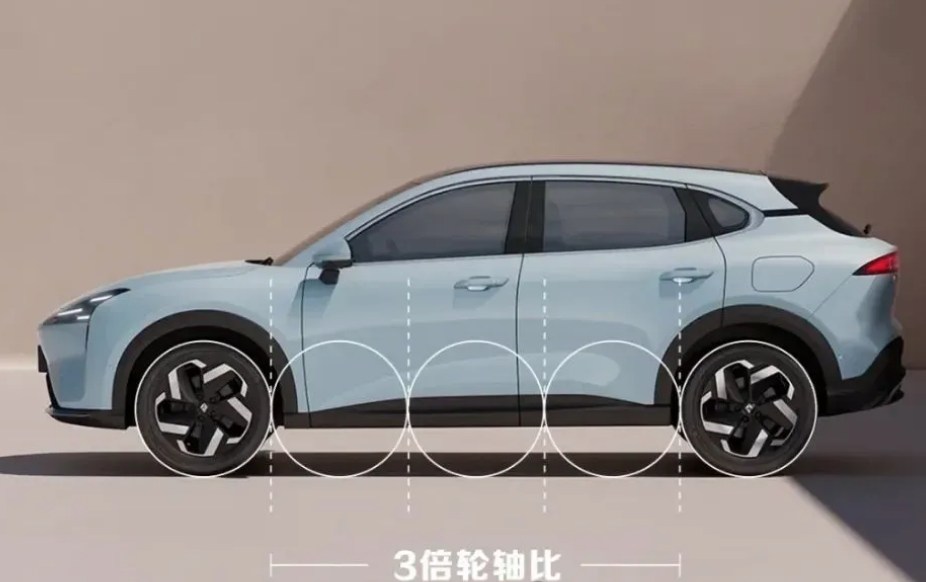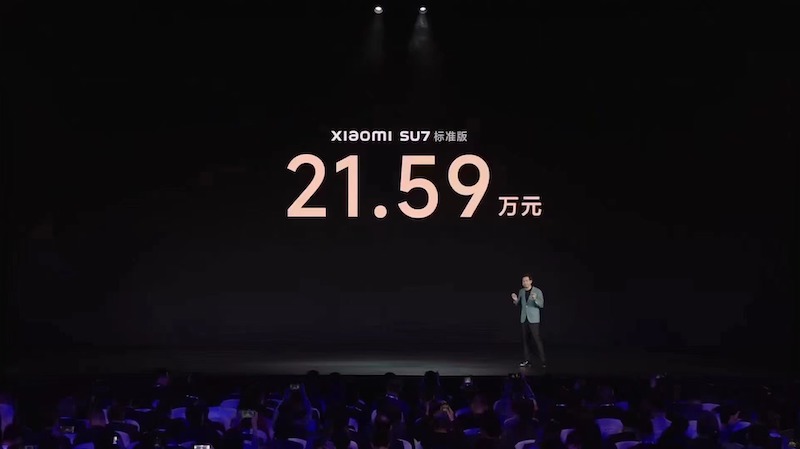On August 26, an owner of the Xiaomi YU7 left a comment under a Weibo post by Li Xiaoshuang, Vice President of Xiaomi Auto, stating that they had been required to pay the balance for their Xiaomi YU7 within 7 days after the vehicle rolled off the production line. With 5 days taken for the vehicle to be transported, they only had 2 days to inspect the car and make the payment. The owner mentioned that they had learned other customers were allowed to pay within 7 days after the vehicle arrived at the store. However, they were unavailable during those 2 days and were told that if they failed to make the payment, the order would be canceled. They also said that calling the 400 hotline did not help them change the delivery arrangement. The netizen expressed hope that Li Xiaoshuang could help resolve their request of paying the balance within 7 days after the vehicle arrives at the store. In response to the netizen’s comment, Li Xiaoshuang stated that he would take it seriously and verify the situation.

It is understood that the Xiaomi YU7 is the second mass-produced vehicle under Xiaomi Auto, positioned as a pure electric SUV. The new car was launched on June 26 this year, offering three versions: the Standard Edition, Pro Edition, and Max Edition, priced at 253,500 yuan, 279,900 yuan, and 329,900 yuan respectively. The new car was well-received in the market upon launch; official data shows that 200,000 units of the Xiaomi YU7 were pre-ordered (with a large deposit) within 3 minutes of its launch, and 248,000 orders were locked within 18 hours. Behind the booming orders, however, is undoubtedly the long delivery time. According to the Xiaomi Auto APP, the current delivery cycle for the Xiaomi YU7 Standard Edition is 54-57 weeks, the Pro Edition is 46-49 weeks, and the Max Edition is 40-43 weeks. In other words, anyone ordering a Xiaomi YU7 now will have to wait at least 10 months for delivery. If the netizen’s order is canceled, it means they will have to go through the purchase process again, and the delivery time will naturally start counting from the beginning.
It is worth mentioning that this is not the first time Xiaomi Auto has attracted attention for requiring advance payment of the balance. As early as early August, a netizen posted that “Xiaomi Auto requires advance payment of the balance, demanding that the balance be paid within 7 days; otherwise, the deposit will be directly forfeited.” At that time, in response to this news, a Xiaomi Auto salesperson stated that the requirement to pay the balance in advance was only for some potential car owners with special circumstances. Additionally, it applied to some users assessed to have a higher risk of not picking up the car—for example, those with low cooperation in handling financial installments or who had expressed the intention of not wanting to pick up the car.
In April this year, @Xu Lili XLL, a Weibo-certified new knowledge blogger, posted online that they had locked an order for the Xiaomi SU7 on May 20, 2024. At the end of last year, they took the initiative to cancel the order due to configuration adjustments and then relocked it. Xiaomi customer service informed them that they could apply for a 360-day extension. Later, in January this year, they were required to pay the balance within a week, otherwise the order would be invalidated, which they ignored. On April 10, Xiaomi staff informed them that their order had been canceled because they had delayed paying the balance for personal reasons.
In response to the blogger’s post, Wang Hua, General Manager of Xiaomi’s Public Relations Department, once responded that the cancellation of the blogger’s order was mainly due to their breach of contract by failing to pick up the car for personal reasons. Wang Hua pointed out that the blogger had requested to change the car pickup center in November last year and then to modify the license plate registrant, but the submitted materials did not meet the requirements for the changes. On November 23, after the vehicle rolled off the production line, the blogger stated that they could not pick up the car and requested to suspend production scheduling. The staff confirmed with the blogger information such as “it is understood that the order validity period is 360 days from the date of paying the deposit” and “if the order validity period (360 days) is exceeded, the vehicle will no longer be scheduled for production, which will be deemed as your unilateral breach of contract, the above order will be automatically canceled, the car purchase contract will be automatically terminated, and the deposit will not be refunded”. According to the current production scheduling to production cycle of the SU7, to ensure that the blogger could pick up the car normally in May 2025 and for transaction security (the order was locked on May 20, 2024, with a 360-day validity period), Xiaomi sent a production scheduling notice to the blogger on January 13, 2025. The blogger chose to extend the period but needed to pay the down payment for the vehicle balance in installments. However, the blogger failed to make the payment within 7 days, and during this period, Xiaomi tried to communicate with them but received no response. As a result, the company submitted the cancellation of the order on April 10.
In fact, regarding the payment of the balance mentioned in the above netizens’ posts, it is clearly stated in the “Xiaomi Auto Purchase Agreement” that users need to pay the balance in full within 7 days after receiving the payment notice. Failure to pay the balance in full on time or refusal to pay the balance constitutes a fundamental breach of contract, and Xiaomi Auto has the right to cancel the order, terminate this agreement, and keep the deposit.
In this regard, some industry insiders have pointed out that requiring the payment of the balance can help car companies crack down on the behavior of “scalpers” hoarding orders in the market and improve the subsequent delivery time. After all, some users place orders but then don’t want the vehicle after it is produced, which will virtually delay the pickup time for owners who truly need to pick up the car. As for the payment of the balance, it is generally based on the provisions of the purchase agreement. Consumers are advised to carefully read the terms when signing the car purchase agreement. If they have any objections, they should put them forward in a timely manner and negotiate supplementary agreements to avoid unnecessary disputes.


